Is Asperger’s Syndrome and Autism Spectrum Disorder Linked to Sleep Issues?
Yes!
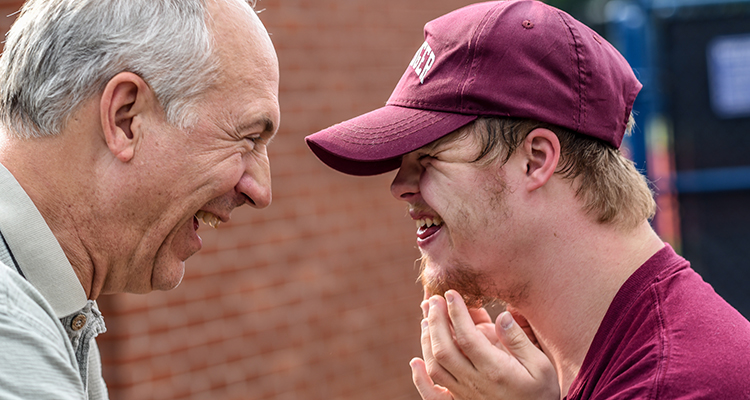
Contrary to popular belief, a good night’s sleep is not promised for anyone, but it is especially evasive for many people with Asperger’s syndrome and autism spectrum disorder.
Research suggests that people with Asperger’s syndrome or autism spectrum disorder (ASD) may experience a variety of sleep issues. These sleep problems are usually caused by a lack of melatonin, the hormone responsible for relaxation and sleep. More specifically, melatonin helps you fall and stay asleep throughout the night. Melatonin is naturally produced in the body and is typically released after sunset. The purpose of melatonin is to allow you to rest while your mind and body repair themselves.
Nevertheless, many autistic people (including those with Asperger’s syndrome) produce little-to-no melatonin in the evenings (i.e., when it is time to wind down and go to sleep), leading to “sleeplessness” and sleep disorders, like insomnia. Melatonin supplements are available over-the-counter (prescription-free) in Canada and the US. However, a prescription for melatonin may be required in other countries.
Keep in mind that melatonin supplements may not be as effective as “natural sleep.” The good news is these supplements can be coupled with other sleep aids (i.e., Insomnia treatment programs, relaxation techniques, lifestyle changes, sleep medications, etc.) to give you a greater chance of getting quality sleep.
Understand that if your body does not get the rest and sleep it needs to repair and re-energize itself, it is difficult, if not impossible, to function at an optimal level. Insomnia or poor sleep not only affects your neuroreceptors but also your adrenaline and serotonin levels. Neuroreceptors are neurotransmitters or chemical messengers in the brain that are responsible for sleep and removing unnecessary stimuli.
Adrenaline (adrenal fatigue) and serotonin are hormones that can impact your circadian rhythms or internal clock. But although serotonin can help you sleep soundly all night long, adrenaline can have the opposite effect. People with Asperger’s syndrome or ASD, who have a hard time falling and staying asleep, tend to have high adrenaline levels and low serotonin. They also tend to release lower amounts of neuroreceptors in the evenings (before bed).
The result? Poor cognitive function or sluggish brain activity, irritability, aches and pains, extreme fatigue, mental confusion, daytime sleepiness or grogginess, low motivation, etc.
Note: It is important to understand that Asperger’s syndrome is on the less severe end of the autism spectrum.
Content
What is Autism Spectrum Disorder (ASD)?
According to the CDC, autism spectrum disorder (ASD) is a neuro-developmental condition that can cause a wide range of social, behavioral, and communication difficulties. Although people on the autism spectrum do not look any different than people not on the spectrum, autistic people tend to communicate, socialize, think, learn and process information, problem-solve, and behave differently than non-autistic people.
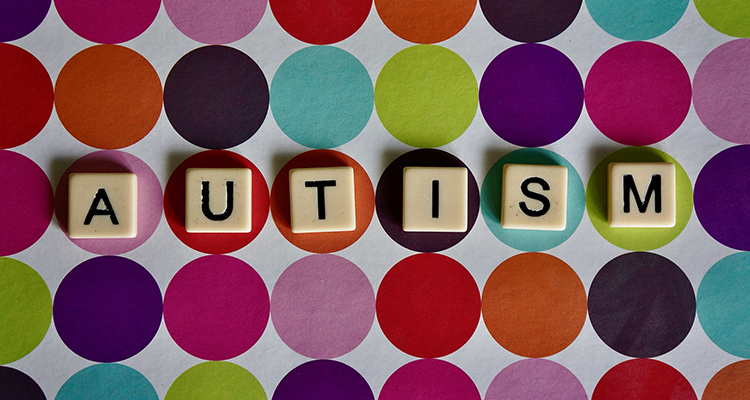
People with autism can be “gifted,” “severely delayed” or fall somewhere in-between. Furthermore, some people with autism need a lot of help, as they age, while others (i.e., people with Asperger’s syndrome) need very little assistance and can live independently, as adults.
What is Asperger’s Syndrome?
The National Institute of Neurological Disorders and Stroke also defines Asperger’s syndrome as a neuro-developmental condition. This condition lies on the autism spectrum, which means that it belongs to a unique class of neurological disorders, marked by speech delays, mutism, language impairment, poor social skills, and repetitive behaviors. Children with Asperger’s syndrome, unlike those with autism, typically develop and retain their language skills.
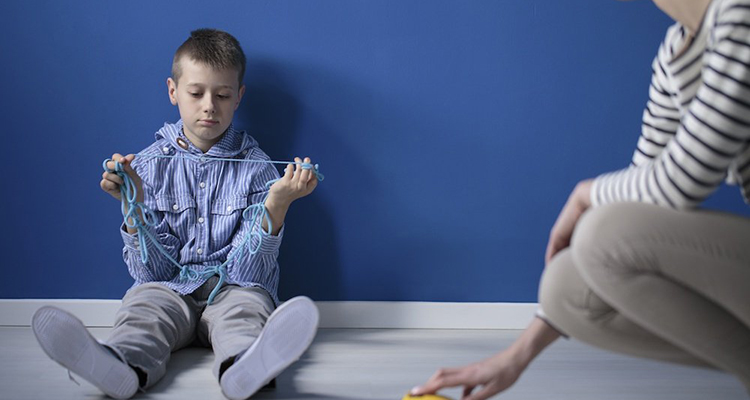
The main thing that separates Asperger’s syndrome from autism is that people with Asperger’s tend to focus on or become “fixated” on a specific topic or item, ignoring anything that does not fall into this category. These individuals spend so much time learning about this topic or object that they tend to become experts on them.
Note: People with Asperger’s syndrome tend to fair the best. These individuals usually have high IQs and many go on to be successful business owners, philanthropists, presidents, and entrepreneurs (i.e., Bill Gates, Wolfgang Amadeus, Albert Einstein, Isaac Newton, Thomas Jefferson, Vladmir Putin, etc.)
Why Do People with Asperger’s Syndrome or Autism Spectrum Disorder Experience Sleep Issues?
People with Asperger’s syndrome or autism spectrum disorder (ASD) experience sleep issues for a variety of reasons – i.e., due to the conditions, medications, or other co-existing conditions, such as gastrointestinal distress (i.e., nausea, upset stomach, abdominal pain, diarrhea, constipation, etc.), anxiety, depression, extreme or chronic stress, and/or attention-deficit hyperactivity disorder (ADHD) – all of which can lead to poor or non-existent sleep.
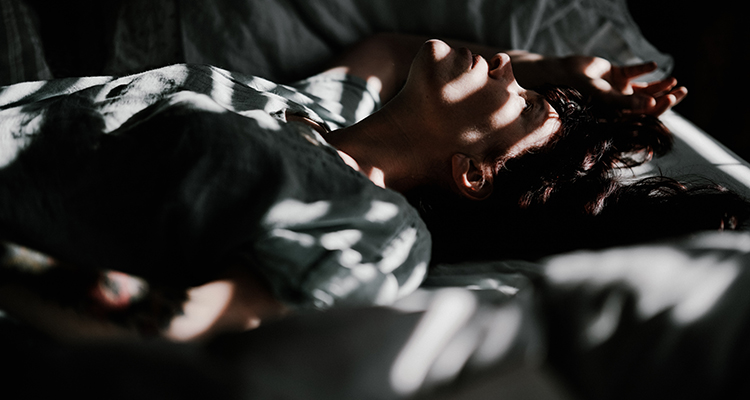
Loud noises, bright lights, an uncomfortable bed, pillows, temperature, bedroom, sheets and/or bedspreads/comforters can disrupt your circadian rhythm and prevent you from getting quality sleep. As mentioned above, certain medications taken for Asperger’s or autism and medications taken for other ailments or conditions can also cause insomnia. For example, the headache medicine, Excedrin, and stimulants, like Ritalin, often used to treat ADHD, can keep you up all night if you take them too close to bedtime.
Repetitive behaviors, commonly associated with Asperger’s and ASD, can also make getting quality zzz feel like an uphill battle. Because, these disruptive feedback loops keep these individuals awake, finding ways to promote sleep is a top concern for researchers, doctors, and families, who have loved ones grappling with one of these conditions. Researchers have also found that people with Asperger’s or ASD are more likely to carry gene mutations that can affect their melatonin levels and disrupt their circadian rhythms (sleep-wake cycles), causing “sleeplessness” or insomnia.
Note: Studies suggest that insomnia and other sleep disorders may be linked to depression in people with Asperger’s syndrome or ASD. Although, the jury is still out when it comes to if depression is a trigger or effect of “sleeplessness” in people with these conditions.
What Sleep Issues are Common in People Who Have Asperger’s Syndrome or Autism?
Yes!
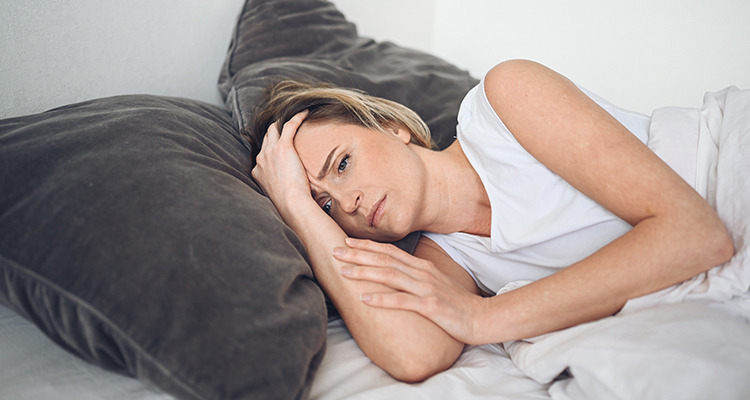
Studies also suggest that people with Asperger’s syndrome or ASD who also suffer from sleep apnea, have the highest risk of “sleeplessness” or insomnia. Moreover, researchers have found that people with Asperger’s syndrome or ASD tend to have less “therapeutic” or peaceful sleep than people, who do not suffer from one of these conditions.
In fact, these individuals may only spend 15% of their “snoozing time” in the rapid-eye-movement (REM) stage, while people, who do not fall on the autism spectrum typically spend between 20-25% or 90 minutes of their sleep time in the REM stage. The REM stage is essential for learning, development, and memory.
Note: People, who fall on the autism spectrum, are considered “neurodiverse,” which means they have a different way of learning and processing the world around them.
How Does a Lack of Sleep Affect People with Asperger’s Syndrome or Autism Spectrum Disorder?
More and more studies are beginning to suggest that poor quality sleep or “sleeplessness” can aggravate or worsen autism symptoms, like repetitive movements (i.e., stimming or handshaking, arm flapping, head banging, etc.), awkward social interactions, aggression, and/or delayed learning. In fact, a 2009 study found that hyperactive children with Asperger’s or autism have an increased risk of experiencing sleep issues.
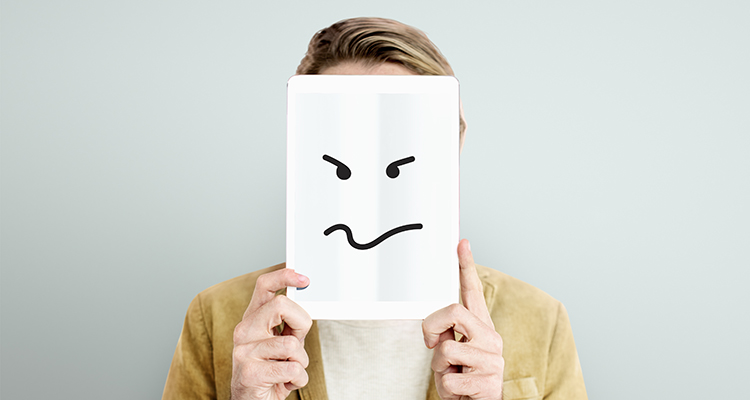
Note: Understand that many people, who fall on the autism spectrum, already feel compelled to perform repetitive behaviors (to ease stress and anxiety) and tend to have a harder time making and retaining friends. However, when they do not get proper sleep each night, these symptoms become more pronounced. These individuals also tend to score lower (than non-autistic people) on IQ tests.
Will Getting More Sleep Improve My Asperger’s or Autism Symptoms?
Possibly…
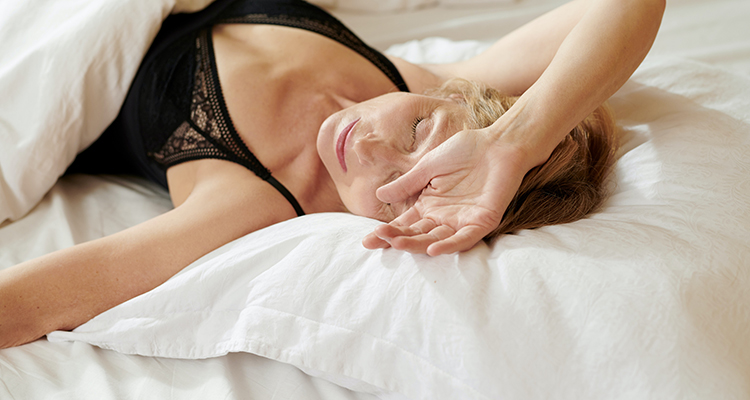
Studies are actually limited when it comes to this aspect of Asperger’s syndrome and autism. However, some studies suggest that autistic people, who have surgery to improve their airflow, may communicate more effectively, than those, who do not have this surgery. These individuals are also less likely to exhibit repetitive behaviors, as compared to those, who struggle to breathe every night. Moreover, researchers have found that Asperger’s and autism symptoms improve (in some people), who take melatonin supplements at night to sleep.
Note: Understand that more and better-quality sleep is not going to magically cure Asperger’s syndrome or ASD, however, there is a possibility that it could help you resume more “normal” sleep-wake cycles, making learning easier, and cause you to be less irritable and/or angry throughout the day.
Are There Any Treatments That Can Help Me Sleep Better – If I Have Asperger’s Syndrome or Autism?
Absolutely!
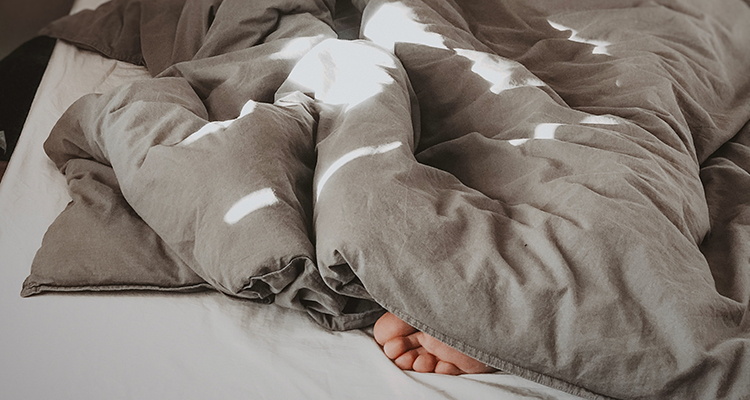
The most important thing you can do to reduce your Asperger’s and ASD symptoms is to develop a consistent bedtime routine. Why is this important? Because developing a stable bedtime routine helps your brain and body prepare for sleep.
So, create a list of things to do every night before bed, such as arriving home, preparing and eating dinner, watching television or scrolling the internet for an hour or two after dinner, taking a 30-45-minute warm shower or bath, shutting down all of your electronics (including your smartphone), adjusting the temperature in your home and/or bedroom, setting your alarm clock, dimming the lights or turning them off completely, turning on a sound machine, and lastly, climbing into bed.
If you are unable to sleep, talk to your doctor about your sleep issues. He or she may suggest some OTC sleep medications, like Unisom, or prescribe some sleeping pills, like Ambien, to help you get quality zzz. And, for more serious sleep issues, your doctor may refer you to a sleep clinic for a sleep study or order a CPAP machine to help open your airway while you sleep.
In some cases, obstructive sleep apnea surgery may be recommended, however, this is rare. Lastly, as mentioned previously, melatonin supplements have helped some people with Asperger’s or autism get a good night’s sleep. In fact, research suggests that melatonin supplements can help people on the autism spectrum fall asleep faster and stay asleep longer at night.
Is There Any Other Tool I Could Use to Get Some Much-Needed Sleep?
Actually yes, there is…and it is called Somnus Therapy!

What is Somnus Therapy? Well, it is an effective online sleep program, geared towards helping you get better quality sleep, regardless of your health condition(s). In other words, anyone can benefit from this sleep program! What is included in this program and how much does it cost? Well, you are in luck because Somnus Therapy is not only highly affordable but also extremely accessible and effective.
In other words, you can access a ton of valuable sleep tools (i.e., CBT-I, ACT, audio recordings, etc.) – whenever and wherever you want! So, if you are having trouble getting quality sleep, fret no more – Somnus Therapy is coming to your rescue. With proper sleep, you will feel stronger, fearless, and more resilient – just like a superhero! Who is ready to fall asleep faster and stay asleep longer? If so, checkout Somnus Therapy asap!
















